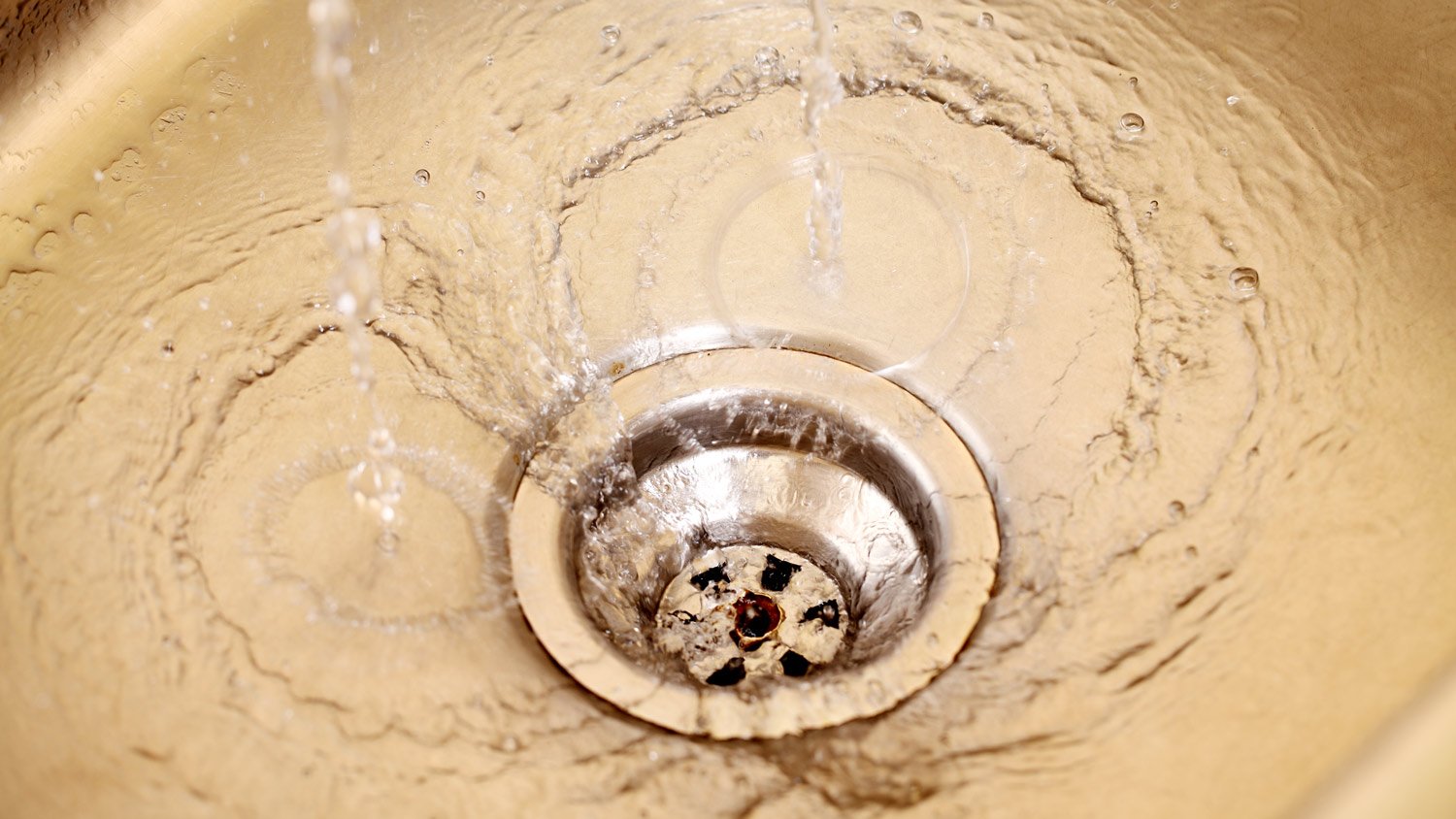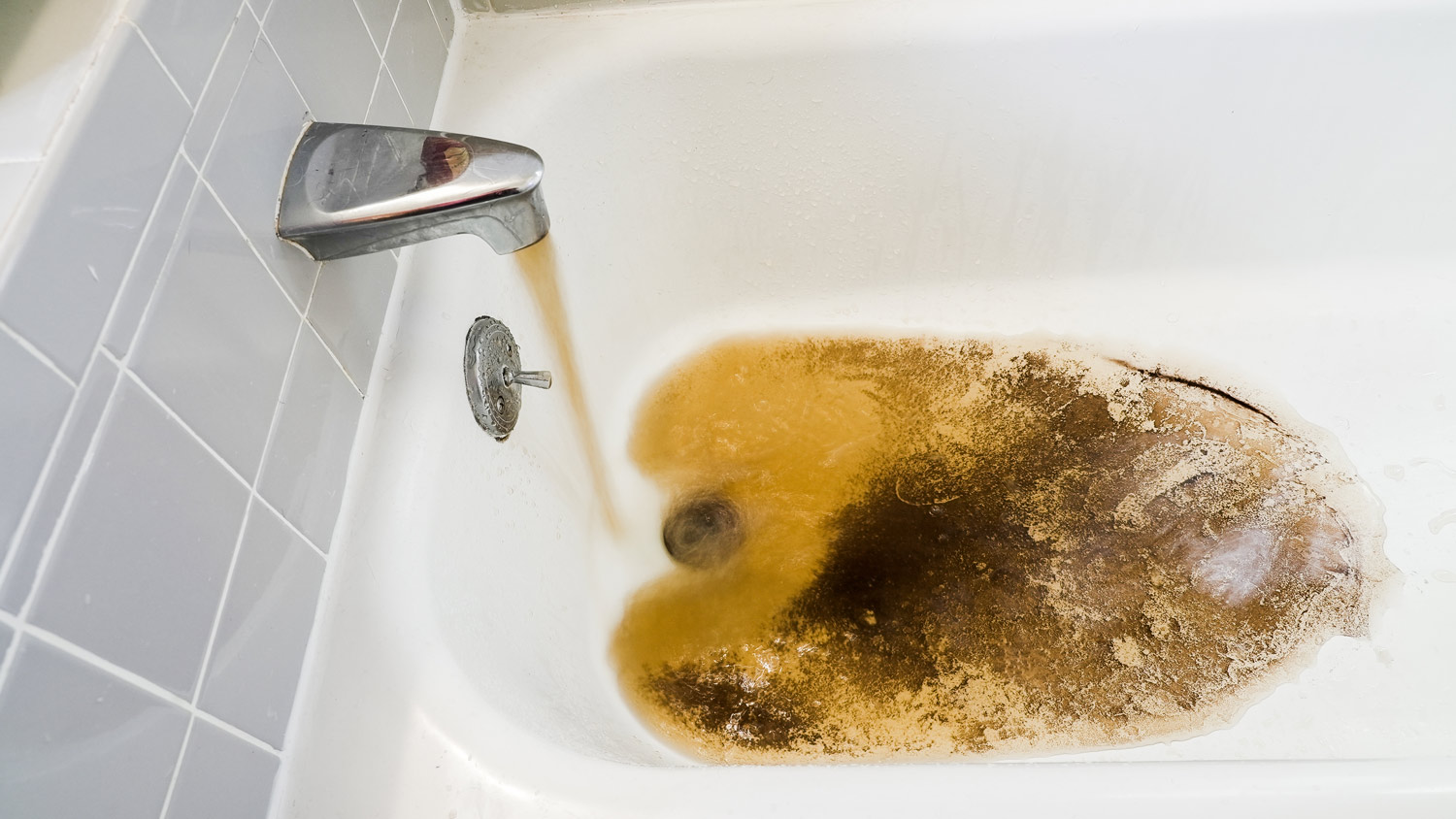
Whether you’re changing your home’s floor plan in a remodel or just replacing old, worn-out plumbing, this guide will help you estimate the cost of repiping a house.
Yellow water is no reason to panic


Yellow water is most commonly caused by either a high iron content or the presence of tannins in the water.
Rust inside pipes, faucets, or a water heater can cause the water in your sink to turn yellow.
Yellow water usually turns clear if you let the tap run for a few minutes, but if the problem persists, it’s best to call a plumber.
Yellow-tinged water is not something you want to see when you turn on the bathroom tap. But while yellow water looks disgusting, it’s a common occurrence in homes. This guide explains why your sink water is yellow—and how to make it run clear.
A high iron content is the most likely cause of yellow sink water. Iron can enter your water system for several reasons: utility work, water main breaks, and rusty pipes—any activity that can disturb the sediment in pipes.
Wait to see if the problem is resolved by running the water for a few minutes to flush out the pipes. If the problem is consistent, call a plumber to check pipes for excessive rust or other underlying issues.
If you get your water from a well, the yellow color could be caused by tannins. Tannins form when soil has a high peat content and the water passes through it. Water might taste bitter or smell musty if tannins are the cause.
Tannins aren’t harmful to your health, but they can make your water taste and smell unpleasant. Call a pro to inspect your well and ask about activated carbon filtration and anion exchange to remove the tannins from the water before it reaches your home.

If the water is only yellow in one sink, it could be caused by corrosion in your faucet. Over time, the inside of the faucet can rust and wear away, causing yellow (or even brown) water to come out.
Take a few clear glasses and fill them with water from different sinks in your home to determine if the yellow water is a house-wide problem or concentrated in one sink. You may need to replace the faucet if it’s rusted and causing your water to turn yellow.
Rust in plumbing lines or your water heater can turn sink water yellow. Pipes made from galvanized steel are especially susceptible to rust. When water is only yellow when it’s hot, you probably have rust in the water heater.
Call a pro to inspect your plumbing system and water heater. They may recommend replacing old metal pipes with PEX (cross-linked polyethylene) or CPVC (chlorinated polyvinyl chloride) to prevent future rust issues. Or they may flush out your water heater to clean it and remove rust buildup. Note that flushing out an old water heater model that has never been cleaned can actually damage it.
In most cases, yellow sink water isn’t anything to worry about. It’s likely caused by your utility provider flushing out the lines and will resolve if you let the water run until it’s clear. However, if the water stays yellow even after letting it run for several minutes, you might want to call a plumbing repair professional near you.
A pro can inspect your home’s plumbing system to check for any underlying issues that are turning your water yellow. They may recommend replacing old pipes and faucets, installing a filtration system, or repairing any broken components in the plumbing system.
From average costs to expert advice, get all the answers you need to get your job done.

Whether you’re changing your home’s floor plan in a remodel or just replacing old, worn-out plumbing, this guide will help you estimate the cost of repiping a house.

Wondering how much it costs to reroute plumbing? We have the information you need to learn about plumbing vent pipes and cost considerations when installing them.

Pipe leak repair costs depend on the location and severity of the leak, as well as the type of pipe being replaced. Use our guide to price out repair work.

Slow drains and foul smells are telltale signs of a clogged plumbing vent. Find out how to unclog a plumbing vent without getting on the roof in this guide.

You never know when learning how to unclog a toilet will come in handy. Get to know these eight methods for the next time things stop flowing.

Finding frozen pipes involves using all of your senses to listen for, smell, and see the signs. Keep reading to learn how to find frozen pipes in your home.